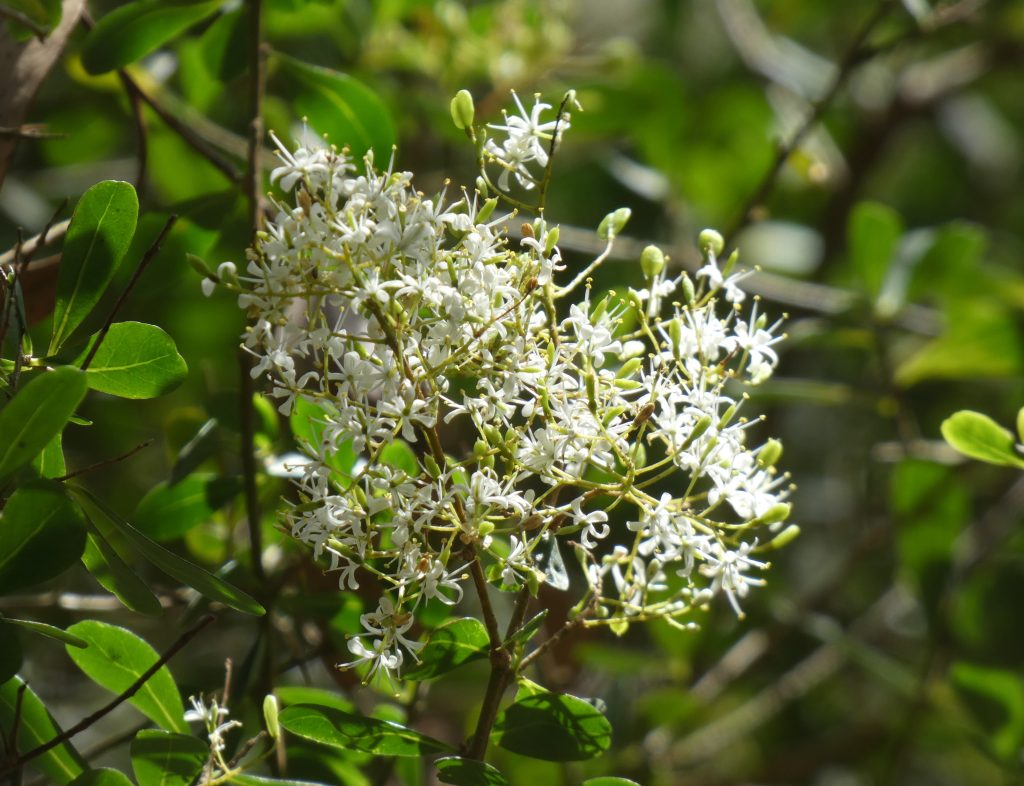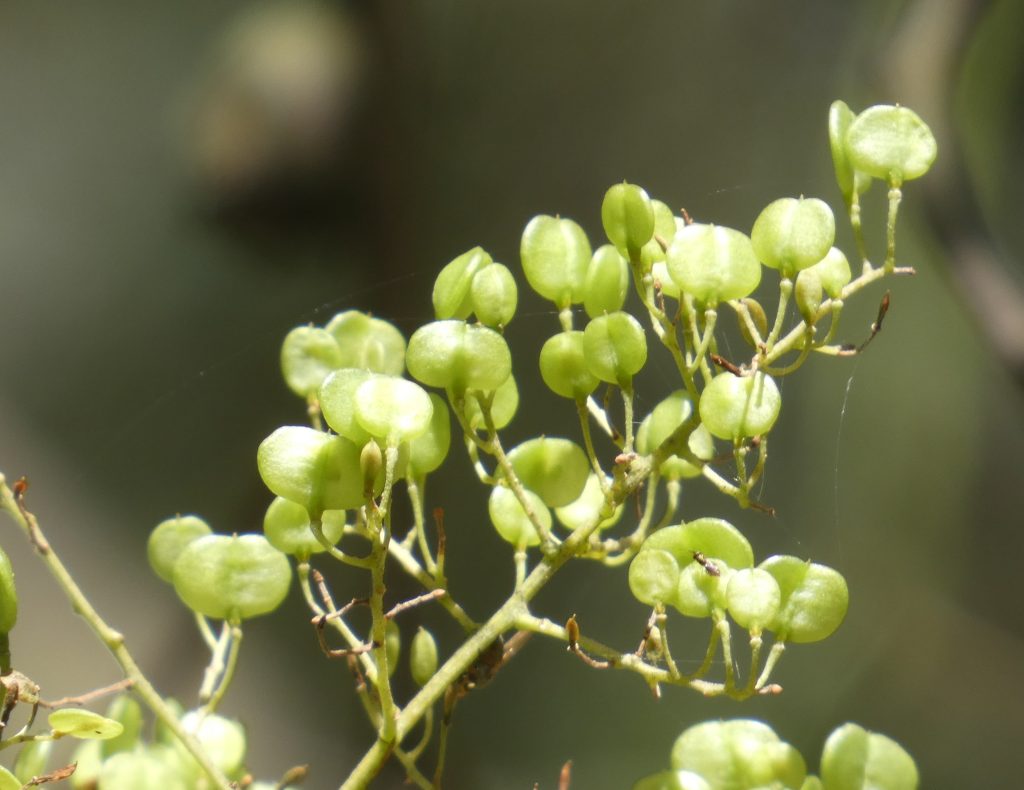Want summer flowers and beneficial insects? Plant a native ‘Christmas bush’.
Is your garden in need of some brightening up over the summer months? Do you want to have more butterflies and beneficial insects in your garden? Then why not get to know the native Christmas bush!
Christmas bush (also called ‘native box’ or ‘sweet bursaria’) has the botanical name of Bursaria spinosa – pronounced ‘Burr-sar-ree-ah’ ‘spin-oh-sa’ and is a spiny small leaved, medium native shrub. It’s called the Christmas bush because this is the time when it lights up your garden with an amazing array of fragrant white-yellow flowers. You won’t be disappointed by the diversity of insects that will be attracted to its floral display, including plenty of beneficial ones.
The seed pods are an additional attraction for craft-loving folk, being purse-shaped and they will change from green to brown when ready to pick for seed. You will know when to pick for seeds as they ‘rattle’ inside the brown pods. Kids can have loads of fun with this part of the plant and even anyone with tactile needs will find this plant very interesting to the touch. Then after all the colour and ‘rattling’ has subsided around late autumn, Bursaria bushes simply blend back into the background, offering dense cover for bird-life and dappled shade.
In addition to insects visiting for the sweet nectar, Bursaria spinosa also plays a wider ecological role for a few species of butterfly, who use it as a host plant for their caterpillars, where they are tended to by ants. These butterflies are in the ‘blue’ family (Lycanidae), and are known as ‘coppers’ which occur in western Victoria and the eastern states of Australia. Bursaria recently led scientists to discover populations of a rare copper butterfly once thought extinct, who rely on this special plant.
On a further gardening note, Bursaria is not known to spread and germinate readily, so therefore won’t become rampant in your and/or neighbouring gardens/bush blocks.
If you would like some seedlings, the NGT nursery has excess numbers this year after a good germination last autumn-winter so contact us to order your plants today!


